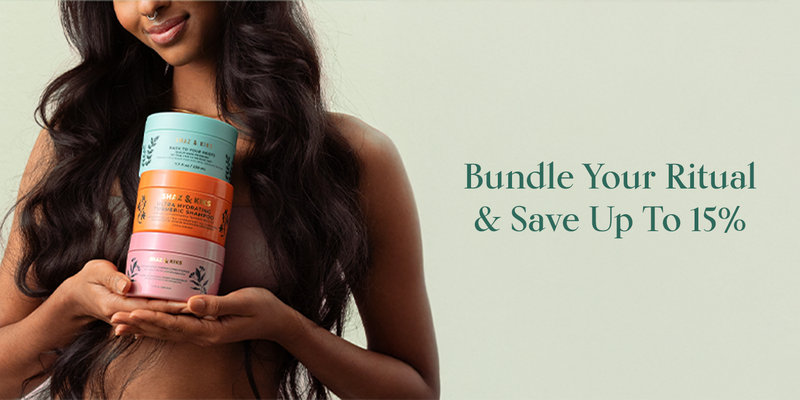Now, my hair type is wavy with fine to medium texture with a scalp that’s on the oilier side. Sulfate-free shampoo works well with my hair, but what about other types of hair? Is sulfate really that bad? Let’s dig a little...
What Are Sulfates?
Sulfates are what make shampoo sudsy. They are a type of surfactant, which means they can attract both water and oil molecules, and it’s this property that makes them good for cleaning. They attract the oil on your scalp, then wash it away. It’s also their surfactant status that allows sulfates to create the lather we all know in our shampoos.
Sodium laureth sulfate, sodium lauryl sulfate, or ammonium laureth sulfate are common sulfates that you can spot on the back of many shampoo bottles.
So What’s the Problem?
The downside of sulfates is that they’re a bit too good at their job as surfactants. Their ability to effectively strip dirt and oil out of our hair means that we also lose a lot of natural oils that protect our hair and scalp—this creates an imbalance of our body’s oil production. It can leave your hair feeling too dry or your scalp getting irritated if you have sensitive skin.That’s where the bad reputation comes in. (Those scary rumors that sulfates, particularly sodium lauryl sulfate, can cause cancer are false; there isn’t any scientific evidence to support those claims.)
Sulfates are considered safe in concentrations below 1% or when used for short periods of time, according to the Journal of the American College of Toxicology, although any concentration over 2% will cause some degree of skin irritation. But a shampoo that contains sulfates typically has a concentration of around 15%. Most shampoos are packed with conditioning agents to buffer the drying effects of detergent.
What Does This Mean?
There are some definite hair conditions and types that should not be using sulfates because it can result in some real problems.
Curly or frizzy hair: If you’re using a sulfate shampoo, you may be making the situation worse, since sulfate lifts the hair cuticle, making it more likely to frizz. When sulfates make contact with your hair, they create a negative electrical charge, which can create frizz after you shampoo.
Treated hair: After dyeing your hair, it’s usually drier than usual. A sulfate shampoo would add to the dryness. There are also some instances that sulfates’ harsh nature can strip color away. It also can undo the effects of a keratin treatment.
Dry or thin hair: These hair types are more fragile and the sudsy effects of sulfate shampoos can strip out too much of the natural oils needed to keep your strands healthy.
Sensitive scalp: The American Academy of Dermatology recommends sulfate-free shampoo for people with rosacea, eczema, contact dermatitis, or sensitive skin. Any potential lathering effects from sulfate shampoos could irritate these types of conditions.
Frequent washer: You may live in a high pollution area or work up a mean sweat at the gym everyday. Whatever your reason is for washing your hair more frequently throughout the week, sulfate shampoo is probably not a great solution since it's harsher and everyday use of it can really do a number on your strands and scalp.
Conclusion
Sulfates don’t necessarily pose health risks for most people. However, if you have sensitive skin or if your hair is dry, fine, curly, frizzy, treated or damaged, it may be best to choose a sulfate-free shampoo. Here at SHAZ & KIKS, we believe in sulfate-free haircare products. There are some great alternatives that are just as effective but a lot less harsh. And we’re all about balancing our natural oil production that really is beneficial to our bodies.









